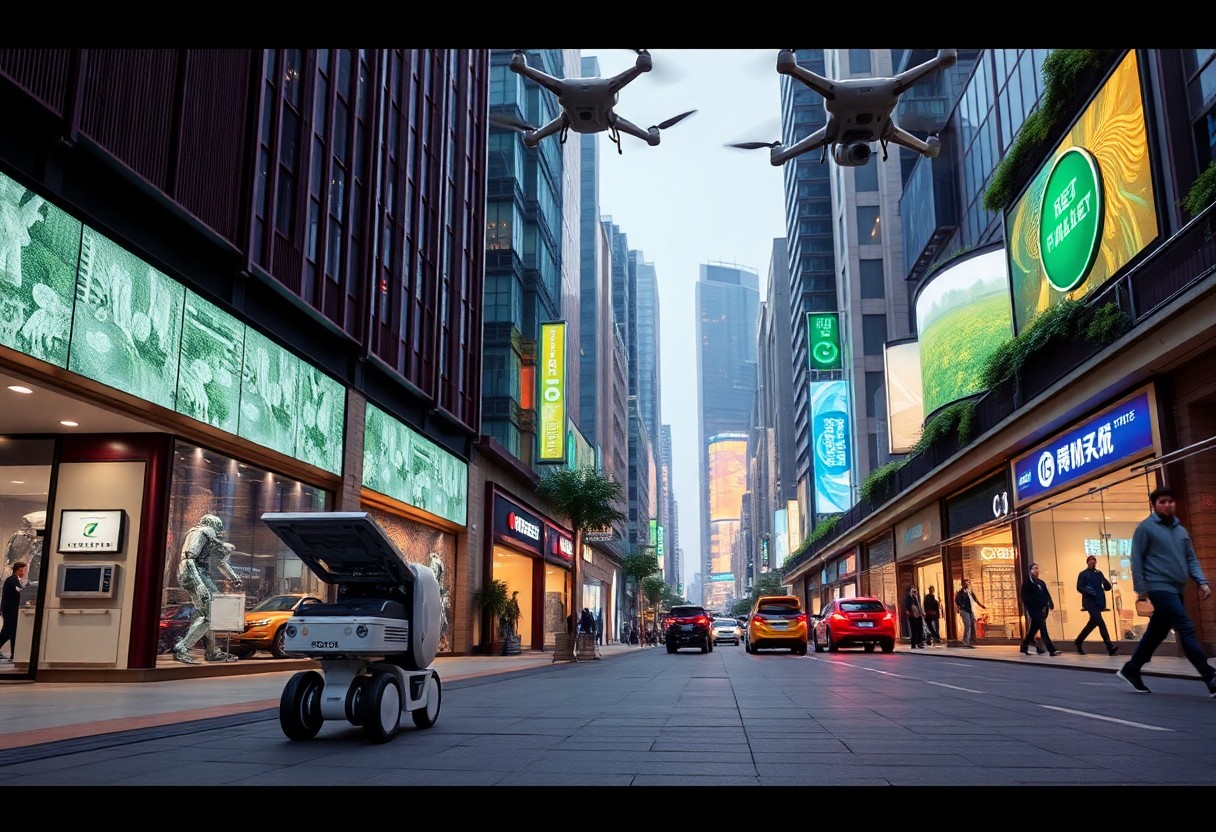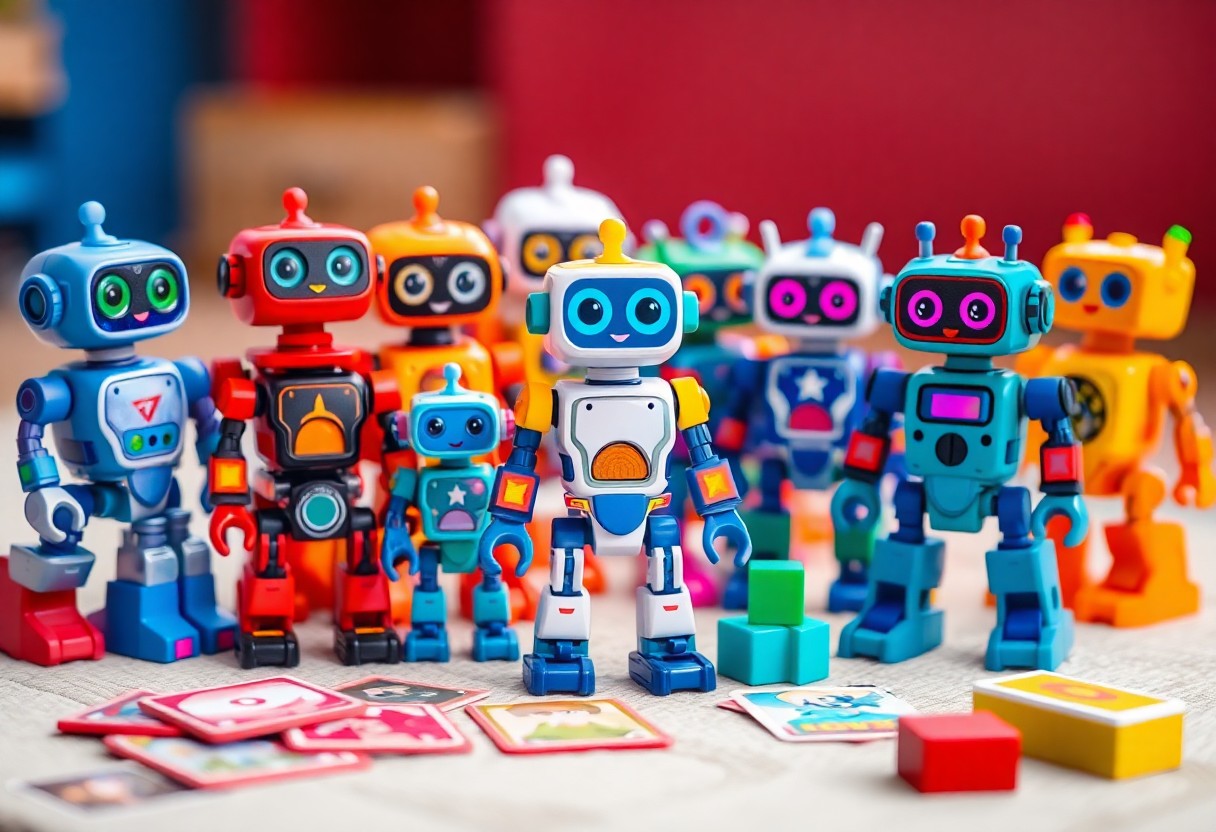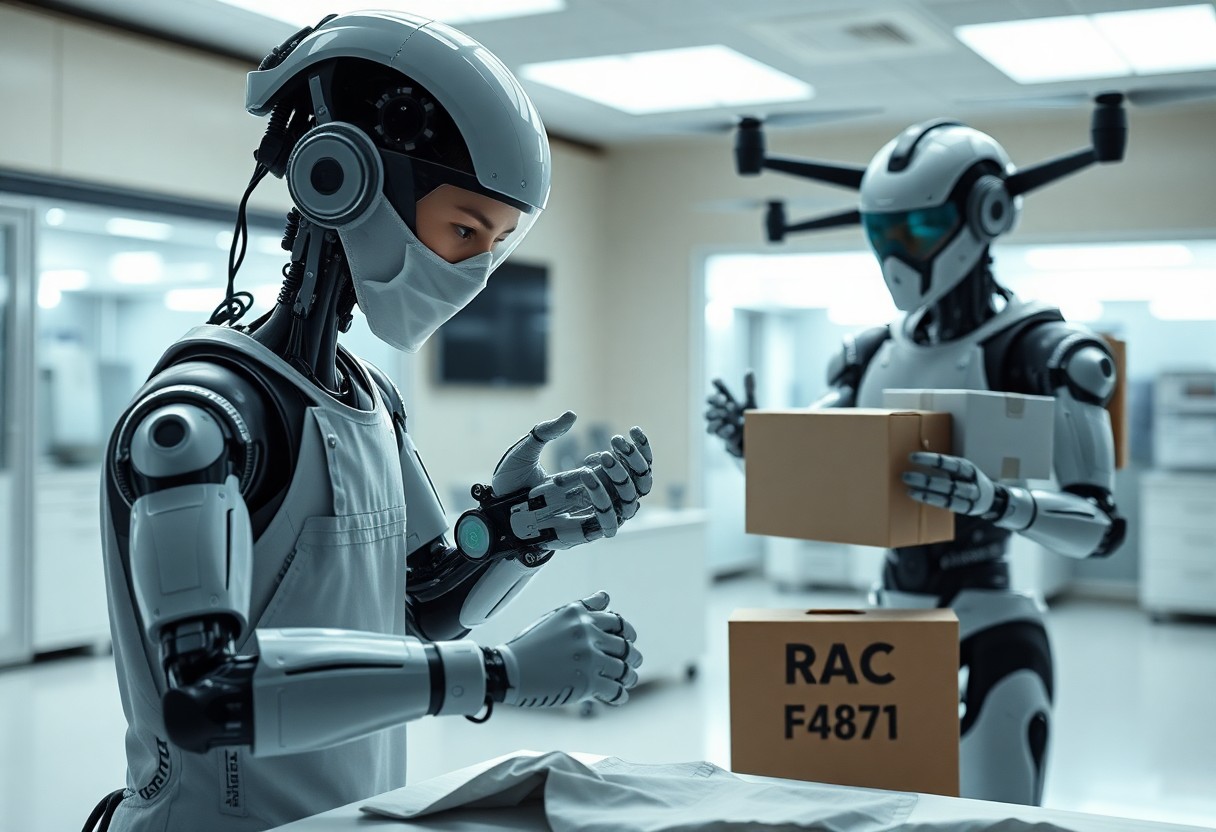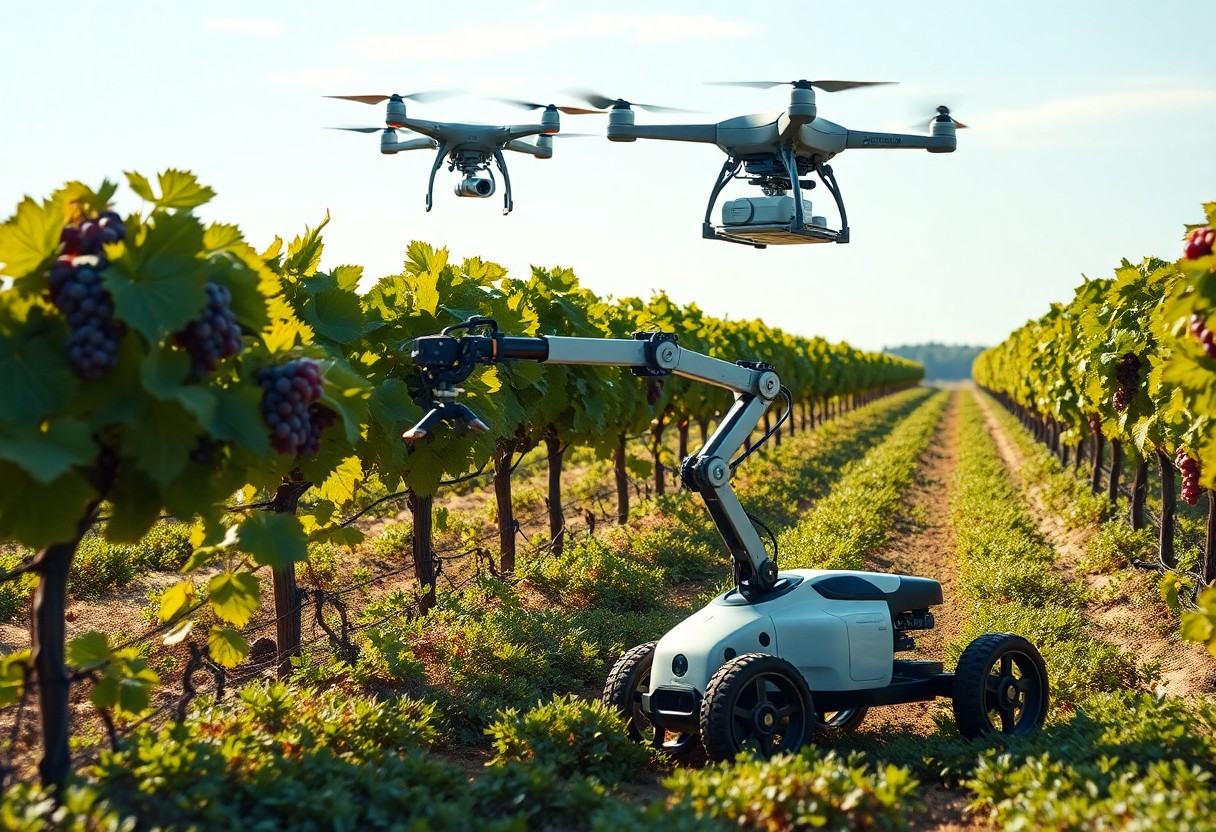Most people are beginning to realize that robots and automation are not just futuristic concepts; they are actively transforming our daily lives and industries. As you navigate this new landscape, it’s important to understand how these advancements are influencing your job, your safety, and your interactions with technology. From healthcare to manufacturing, machines are becoming integral to efficiency and innovation. This post will explore the ways in which the robot revolution is shaping your future and what you can do to adapt in this rapidly evolving world.
Machines in Our Everyday Lives
As machines become integral to our daily existence, the way you manage your time and tasks has transformed dramatically. Routine activities that once demanded significant effort are now handled effortlessly by various devices and technologies. From laundry to navigation, automation and artificial intelligence enhance productivity, allowing you to focus on what truly matters in your life.
Automation’s Impact on Daily Tasks
Automation streamlines many of your daily responsibilities, freeing you from mundane chores. For example, robotic vacuum cleaners can autonomously clean your floors while you relax or attend to other tasks. In the kitchen, smart appliances can prepare meals efficiently, minimizing your time spent on food preparation and cleanup.
The Rise of Smart Homes and Personal Assistants
Smart homes and personal assistants are revolutionizing how you interact with your living space. Innovative devices enable you to control everything from lighting and temperature to security systems through simple voice commands or smartphone apps. This seamless integration not only enhances your convenience but also significantly boosts energy efficiency by optimizing resource usage.
Smart home technology has grown rapidly, with over 200 million devices installed worldwide in just the last year. Personal assistants like Amazon Alexa and Google Assistant can be programmed to learn your preferences, make recommendations, and even automate your daily routines. Imagine arriving home to a perfectly adjusted ambiance and having your coffee brewed just the way you like it, all thanks to these intelligent systems. The convenience they offer is making life not only easier but also increasingly connected, allowing you to control and monitor your home from virtually anywhere.
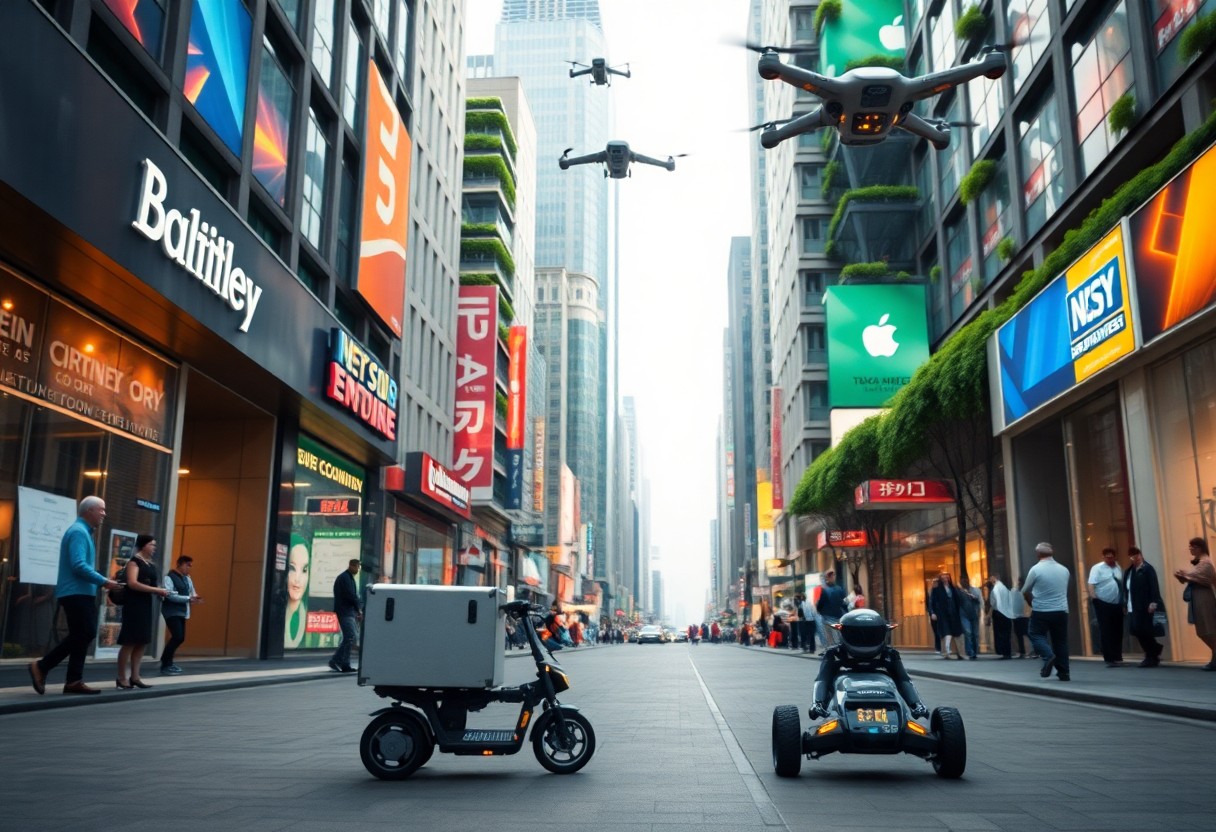
The Economic Landscape of Robotics
Robotics fundamentally alters the economic landscape, driving innovation and efficiency across various sectors. As machines take on more complex tasks, businesses experience heightened productivity and reduced operational costs. Companies are increasingly investing in automation to improve their competitive edge, which can lead to significant shifts in market dynamics and employee roles. The economic impact is profound, suggesting that embracing this technology could boost GDP by trillions of dollars in the coming decades.
Job Displacement vs. Job Creation: The Balancing Act
As automation and robotics advance, a nuanced interplay between job displacement and job creation emerges. While it’s true that some traditional jobs may disappear, new opportunities are being generated in fields like maintenance, programming, and AI development. Your skill set may need to evolve, but the labor market can adapt to accommodate the demands of a technology-driven economy, requiring a proactive approach to retraining and reskilling.
Industries Transformed by Robotics and AI
Various industries are experiencing transformative shifts due to robotics and AI, impacting everything from manufacturing to healthcare. In manufacturing, for example, advanced robotics streamline assembly lines, enhancing speed and precision while reducing human error. The healthcare sector benefits from robotic surgical systems that improve patient outcomes. In agriculture, automation optimizes crop production, minimizing waste and labor reliance. Each of these transformations illustrates how robotics can bring efficiency and innovation to traditional sectors, redefining your interactions with familiar industries.
Consider the automotive industry, where robot-assisted assembly lines have drastically increased output rates. Tesla’s Gigafactory utilizes advanced robotics to produce electric vehicles at unprecedented speeds, showcasing a model for efficiency. In healthcare, surgical robots like the da Vinci system augment human capabilities, allowing for minimally invasive procedures that significantly reduce recovery times. This trend is mirrored in agriculture, with autonomous tractors and drones enhancing crop management and monitoring. As you navigate these evolving landscapes, staying informed about the advancements can offer insightful opportunities for career growth and adaptability.
Redefining Human Skillsets: Adapting to the Age of Robots
As robots and AI reshape industries, your skillset must evolve to remain relevant. Emphasizing creativity, problem-solving, and emotional intelligence will become necessary as machines handle more routine tasks. Embracing collaboration between humans and machines can further enhance productivity, ensuring you develop the ability to work alongside AI effectively.
Essential Skills for the Future Workforce
In the dynamic landscape of tomorrow’s job market, technical proficiency integrated with interpersonal skills stands out. Skills such as data literacy, coding, and familiarity with automation technologies, paired with adaptability and critical thinking, will empower you to thrive in diverse roles. Employers increasingly seek a blend of hard and soft skills that enable innovation and collaboration.
The Role of Continuous Learning and Reskilling
Commitment to lifelong learning positions you for success in a fast-evolving workforce. Regularly upgrading your skills through workshops, online courses, or certifications ensures you stay ahead of technological trends. This proactive approach not only safeguards your career but opens doors to new opportunities, fostering a mindset that embraces change and challenges.
Dedication to continuous learning can make a significant difference in your career trajectory. Engaging with platforms like Coursera and LinkedIn Learning grants access to course offerings tailored to emerging fields such as data science, machine learning, and soft skills development. Studies show that individuals who reskill significantly increase their job market opportunities and adaptability. Moreover, companies investing in employee development report higher retention rates, creating a beneficial cycle of growth for both you and your employer. By prioritizing ongoing education and reskilling, you position yourself as a valuable asset in the age of robotics.
Ethical Dilemmas: Robots and Society
The integration of robots into your society prompts challenging ethical dilemmas that reshape our understanding of responsibility and morality. As machines become more autonomous in decision-making, the question of accountability arises: who bears the consequences when a robot causes harm? This shift in responsibility can complicate legal frameworks, and many argue that the development of ethical guidelines for AI governance should be prioritized to ensure that technological advancements align with societal values and morals.
The Morality of Decision-Making in AI
You might find yourself questioning the moral framework within which artificial intelligence operates. As robots begin to make decisions that affect human lives—such as in self-driving cars or healthcare diagnostics—they must navigate complex ethical scenarios. For instance, how should an AI weigh the lives of multiple passengers in the event of an unavoidable accident? These dilemmas demand transparency and a consensus on the ethical standards that guide AI behavior in high-stakes situations.
Privacy Concerns and Surveillance Capitalism
The vast amount of data collected by robots and AI systems raises significant privacy concerns for individuals in your society. Surveillance capitalism thrives on the collection and monetization of personal data, often without your explicit consent. This constant monitoring can lead to intrusive profiling and the potential misuse of information, fundamentally altering your relationship with privacy and freedom. Understanding how this data is gathered and utilized is crucial for safeguarding your rights in an increasingly automated world.
Surveillance capitalism extends well beyond traditional means of data collection. Companies leverage advanced AI algorithms to analyze behavioral patterns, predicting your preferences and actions with alarming precision. Exposure to targeted ads and personalized content is one side effect, but on a broader scale, your movements and choices can be tracked for commercial advantage. Having your data commodified and subjected to misuse by third parties raises profound ethical questions about your autonomy and the ownership of your digital identity, challenging you to reconsider the implications of embracing automation in everyday life.
The Road Ahead: Innovations on the Horizon
As we gaze into the future, a landscape rich with innovation unfolds, promising to reshape the way we interact with machines. Pioneering advancements in robotics and AI will not only enhance efficiency but also redefine entire industries. From autonomous delivery drones disrupting logistics to intelligent home systems optimizing energy usage, the possibilities seem endless. Your role in navigating this emerging world entails adapting to new tools that further integrate into daily life, ultimately leading to smarter, more sustainable solutions.
Advances in Robotics and AI that Will Reshape Industries
Industries are already experiencing a paradigm shift due to rapid technological advancements in robotics and AI. Manufacturing facilities are employing collaborative robots—commonly known as cobots—that work alongside humans to improve efficiency and safety. In healthcare, robotic surgical systems enhance precision, while AI-driven diagnostics change how treatments are prescribed. You’ll find that these innovations not only streamline operations but also empower you to focus on more complex tasks, driving further creativity and productivity.
Predicting Future Trends in Automation and Human Collaboration
The horizon of automation promises increased synergy between humans and machines, characterized by a collaborative workforce. As AI becomes more integrated into your work environment, routine tasks may be delegated to machines, liberating you to engage in more strategic decision-making. Companies are already investing in training programs that prepare you for such collaboration, ensuring your skill set evolves alongside technology, fostering job satisfaction, and enhancing productivity.
This future of collaboration is already evident in sectors like agriculture, where AI-driven analytics guide farmers in optimizing crop yields, allowing them to make informed decisions. As automation takes over repetitive tasks, your role will shift towards more innovative and supervisory functions, emphasizing creativity and emotional intelligence. Embracing this transition means continually updating your skill set and fostering a culture of adaptability, which will ultimately enhance workplace dynamics and lead to a more fulfilled and productive workforce.
To wrap up
As a reminder, you are witnessing the dawn of a new era marked by the Robot Revolution, where machines are redefining industries, enhancing productivity, and shaping your daily life in profound ways. Embracing advancements in robotics and automation is imperative for adapting to this evolving landscape. Consider how these technologies can not only streamline your work processes but also improve your personal experiences. By staying informed and proactive, you can harness the benefits of this revolution and prepare for the transformative changes it brings to your future.

